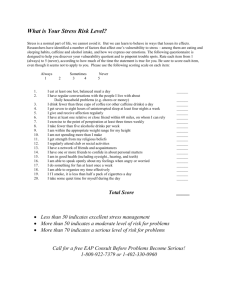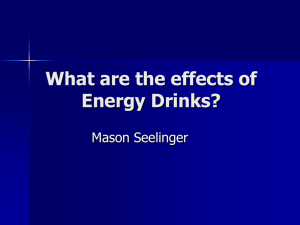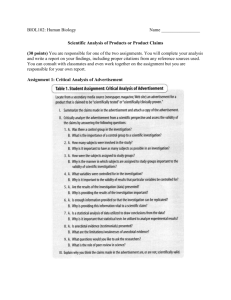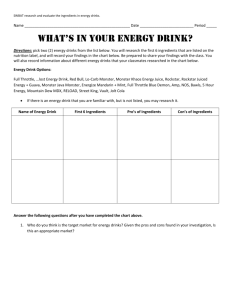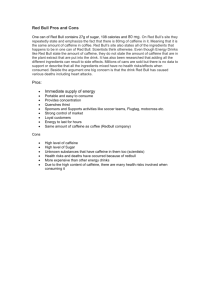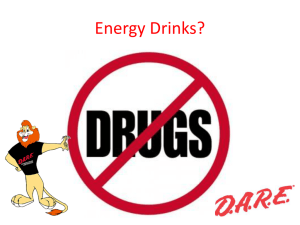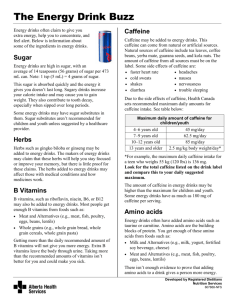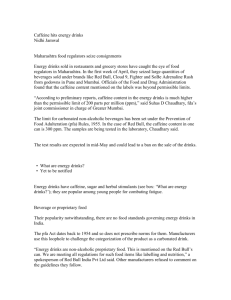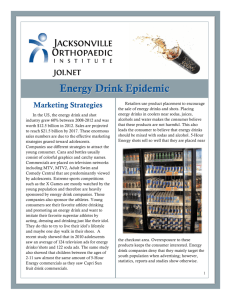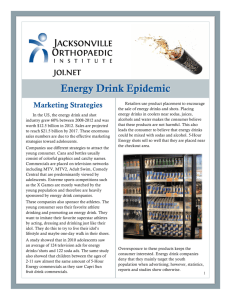Energy Drinks: Powerful Energy or a Can of Bull?
advertisement
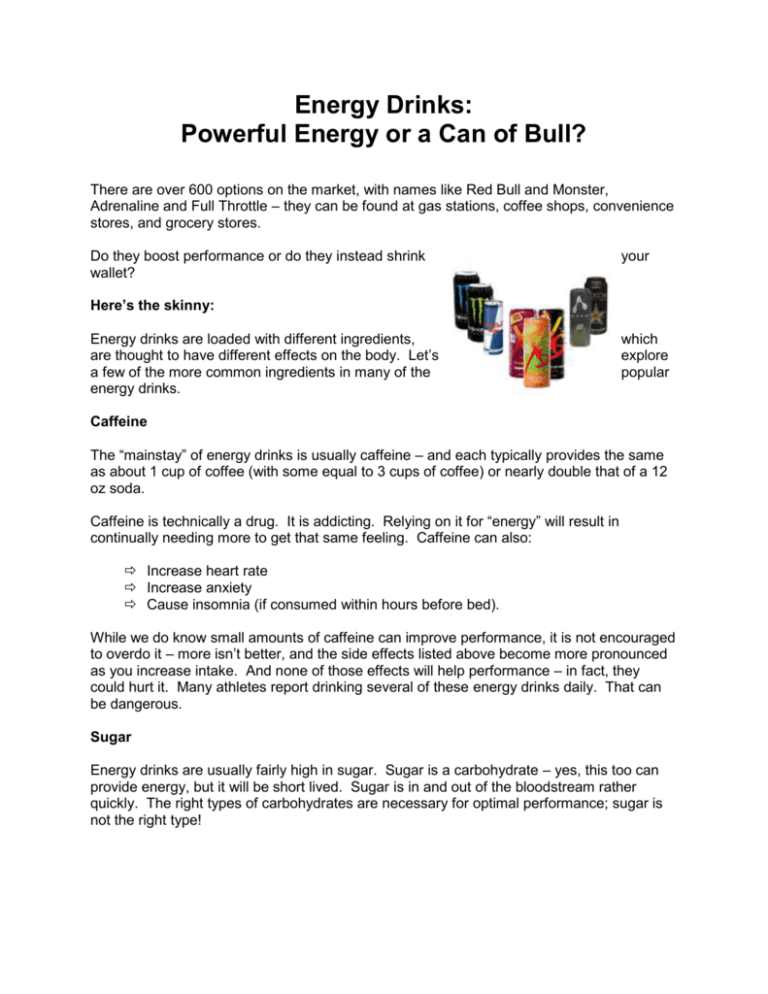
Energy Drinks: Powerful Energy or a Can of Bull? There are over 600 options on the market, with names like Red Bull and Monster, Adrenaline and Full Throttle – they can be found at gas stations, coffee shops, convenience stores, and grocery stores. Do they boost performance or do they instead shrink wallet? your Here’s the skinny: Energy drinks are loaded with different ingredients, are thought to have different effects on the body. Let’s a few of the more common ingredients in many of the energy drinks. which explore popular Caffeine The “mainstay” of energy drinks is usually caffeine – and each typically provides the same as about 1 cup of coffee (with some equal to 3 cups of coffee) or nearly double that of a 12 oz soda. Caffeine is technically a drug. It is addicting. Relying on it for “energy” will result in continually needing more to get that same feeling. Caffeine can also: Increase heart rate Increase anxiety Cause insomnia (if consumed within hours before bed). While we do know small amounts of caffeine can improve performance, it is not encouraged to overdo it – more isn’t better, and the side effects listed above become more pronounced as you increase intake. And none of those effects will help performance – in fact, they could hurt it. Many athletes report drinking several of these energy drinks daily. That can be dangerous. Sugar Energy drinks are usually fairly high in sugar. Sugar is a carbohydrate – yes, this too can provide energy, but it will be short lived. Sugar is in and out of the bloodstream rather quickly. The right types of carbohydrates are necessary for optimal performance; sugar is not the right type! Taurine Taurine is an amino acid. Amino acids are the natural building blocks of protein. Taurine is a natural part of the diet. It is isolated and concentrated so manufacturers can add high levels of this amino acid into this product (and others). Taurine plays an important role in muscle contraction (particularly the heart) and the nervous system. One study showed taurine and caffeine together increased the amount of blood ejected with each beat of the heart – caution should be practiced if an athlete were to take this prior to training for safety purposes. B vitamins B vitamins are found widely throughout the diet. They are necessary for converting food to energy. Adding high levels of supplemental vitamin B, however, does not cause a boost in energy, however. Safety It is unknown how each of these ingredients mixes together. Combining these ingredients can be compared to putting together a football team, with athletes from all over the country, and playing a game the first day the athletes meet – the outcome is unclear, just like it is with the variety of ingredients in many of these products. If it sounds too good to be true, it is. Summary Real food gives the real nutrients athletes need. Food is high octane fuel for the body. With such a variety of drinks on the market, it’s impossible to summarize each ingredient in each product. Most have high levels of the ingredients listed above, but regardless of the particular ingredients added in the product, energy drinks should not be used on a daily basis as a means to provide true energy. True energy comes from: Adequate rest. Sufficient recovery between training sessions. Whole food sources of nutrients – carbohydrates, protein, and fat. Skip the energy drinks, eat real food.
